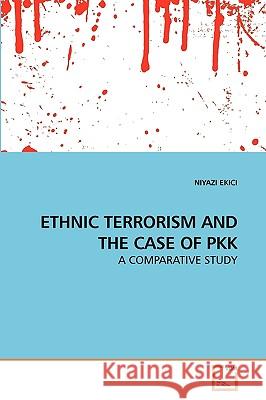Ethnic Terrorism and the Case of Pkk » książka
Ethnic Terrorism and the Case of Pkk
ISBN-13: 9783639247886 / Angielski / Miękka / 2010 / 84 str.
This study examines the case of PKK terrorist organization in terms of how ethnocentric movements are fragmentized and mobilized in the course of the time. First, it illustrates terrorism and ethnocentric movements by providing the case of ETA in Spain and LTTE in Sri Lanka which exhibit the classical pattern of how ethnic terrorism has been employed to compel national authorities into submitting to the wishes of the ethnic nationals for political autonomy. Second, it provides the related literature whether the case of the PKK follows the classical pattern of ethnic terrorism. Accordingly, Kurdish rebels and rightist/leftist movements in the Turkey's history are mentioned for the purpose of how construction and mobilization of Kurdish identity have been occurred. In the final part of this study, some of the activities of the PKK and Turkey's response and arguments against the PKK are discussed.
This study examines the case of PKK terrorist organization in terms of how ethnocentric movements are fragmentized and mobilized in the course of the time. First, it illustrates terrorism and ethnocentric movements by providing the case of ETA in Spain and LTTE in Sri Lanka which exhibit the classical pattern of how ethnic terrorism has been employed to compel national authorities into submitting to the wishes of the ethnic nationals for political autonomy. Second, it provides the related literature whether the case of the PKK follows the classical pattern of ethnic terrorism. Accordingly, Kurdish rebels and rightist/leftist movements in the Turkeys history are mentioned for the purpose of how construction and mobilization of Kurdish identity have been occurred. In the final part of this study, some of the activities of the PKK and Turkeys response and arguments against the PKK are discussed.











